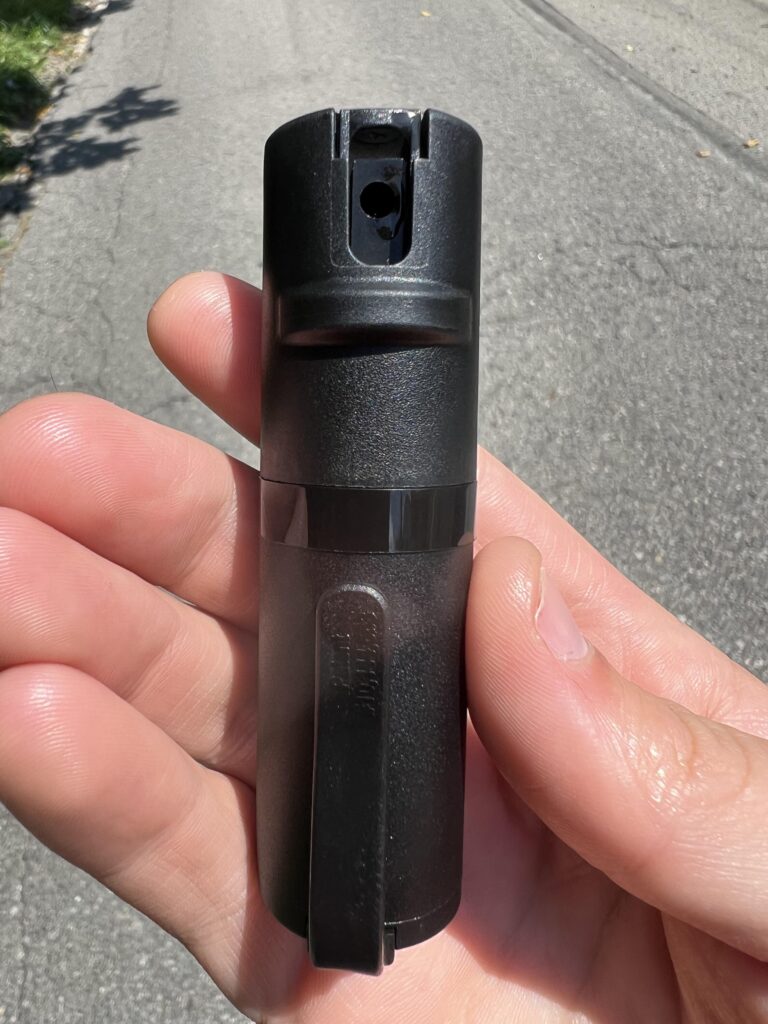Table of Contents
- Legal Framework Governing Pepper Spray Use on College Campuses
- Campus Carry Policies and Their Impact on Personal Safety Tools
- Navigating Compliance: What Students and Staff Need to Know
- Best Practices for Responsible Pepper Spray Ownership on Campus
- In Summary
Legal Framework Governing Pepper Spray Use on College Campuses
When discussing the regulation of pepper spray on college campuses, it’s crucial to understand how federal, state, and institutional laws intersect. At the federal level, no explicit prohibition exists on pepper spray usage for self-defense; however, its status can vary widely depending on state statutes, which outline the legality of possession, use, and carrying of chemical agents. Some states classify pepper spray as a restricted weapon, requiring permits or limiting its size and concentration, while others treat it as a standard self-defense tool with minimal restrictions. These varying laws hold significant weight in shaping campus policies and determine whether pepper spray can be freely carried or if additional conditions apply.
Campus-specific regulations further complicate the landscape. Many colleges maintain their own codes of conduct and weapon policies that may impose stricter controls than those mandated by state law. These policies often address not only the possession but also the circumstances under which pepper spray can be discharged, aiming to balance personal safety with campus security concerns. Key factors commonly considered include:
- Whether pepper spray is permitted in residence halls or academic buildings
- Age restrictions for possession
- Mandatory safety training or notification procedures
- Penalties for misuse or discharge in non-emergency situations
Understanding these layered requirements is essential for students, faculty, and staff who consider carrying pepper spray as part of their personal protection strategies on campus.
Campus Carry Policies and Their Impact on Personal Safety Tools
Many campuses have adopted strict regulations regarding the possession of personal safety tools to balance security concerns with legal liabilities. Among these tools, pepper spray stands out due to its effectiveness and ease of use, but policies vary dramatically. Some schools permit pepper spray as a non-lethal means of self-defense, while others classify it alongside prohibited weapons. It’s crucial for students and staff to carefully review their institution’s specific rules, as possession of pepper spray in restricted zones can lead to disciplinary action or legal consequences.
Understanding the nuances of these policies can empower individuals to make informed decisions about their personal safety. Key points often highlighted include:
- Allowed types and sizes: Some campuses only authorize pepper spray with certain concentration levels or containers below a specific volume.
- Storage and transport: Rules may require pepper spray to be kept off-campus or declared at security checkpoints.
- Usage restrictions: Using pepper spray indiscriminately, even in self-defense, may violate campus conduct codes.
By carefully navigating these elements, individuals can better protect themselves while respecting institutional boundaries designed to maintain a safe and peaceful environment.
Navigating Compliance: What Students and Staff Need to Know
Understanding the specific laws surrounding pepper spray on campus is crucial for both students and staff who carry. While pepper spray can be a valuable self-defense tool, many institutions have strict policies that either limit or outright prohibit its possession. To avoid unintentional violations, it’s important to review your campus’s regulations thoroughly. Key compliance points often include:
- Restrictions on container size and concentration levels of pepper spray.
- Designated areas where carrying is allowed or forbidden (e.g., dormitories, classrooms, administrative offices).
- Requirements to register or declare the item with campus security or administration.
Ignoring these regulations can lead to disciplinary actions ranging from fines to suspension, regardless of intent. Additionally, some jurisdictions impose state laws that intersect with campus policies, meaning compliance requires close attention to both local and institutional rules. Staying informed not only protects your legal standing but also ensures a safer environment for everyone on campus.
Best Practices for Responsible Pepper Spray Ownership on Campus
When carrying pepper spray on campus, it’s essential to prioritize safety and legal compliance. Always ensure your device is approved for civilian use and contains a formulation permitted by campus regulations. Keep the spray in an easily accessible yet secure location, avoiding accidental discharge or misuse. Understanding and respecting designated no-carry zones, such as academic buildings or dormitories, help maintain a safe environment for all. Regularly check the expiration date to guarantee the spray’s effectiveness if needed.
Responsible ownership also involves ongoing education and mindfulness. Before carrying pepper spray, familiarize yourself with proper handling techniques and the circumstances under which use is justified. Consider the following best practices:
- Store properly: Away from extreme temperatures and out of children’s reach.
- Practice restraint: Use only in genuine self-defense situations.
- Stay informed: Regularly review campus policies to remain compliant.
- Report responsibly: Immediately notify campus authorities following any deployment.
In Summary
In navigating the complexities of campus carry policies, understanding the specific restrictions around pepper spray is essential for students, faculty, and staff alike. While pepper spray can be a valuable tool for personal safety, it’s important to stay informed about your institution’s rules and local laws to ensure compliance and responsible use. By keeping these guidelines in mind, you can better protect yourself while respecting the safety and regulations of your campus community. Stay safe, stay informed, and always prioritize thoughtful preparedness.Check Our Other Blogs
- StunGun – Your Trusted Source for Stun Guns, Laws, and Self-Defense Tips
- PepperSprayLaws – Your Trusted Resource for Pepper Spray Information
- StunGunLaws – Your Trusted Guide to Stun Gun Legality and Safety




